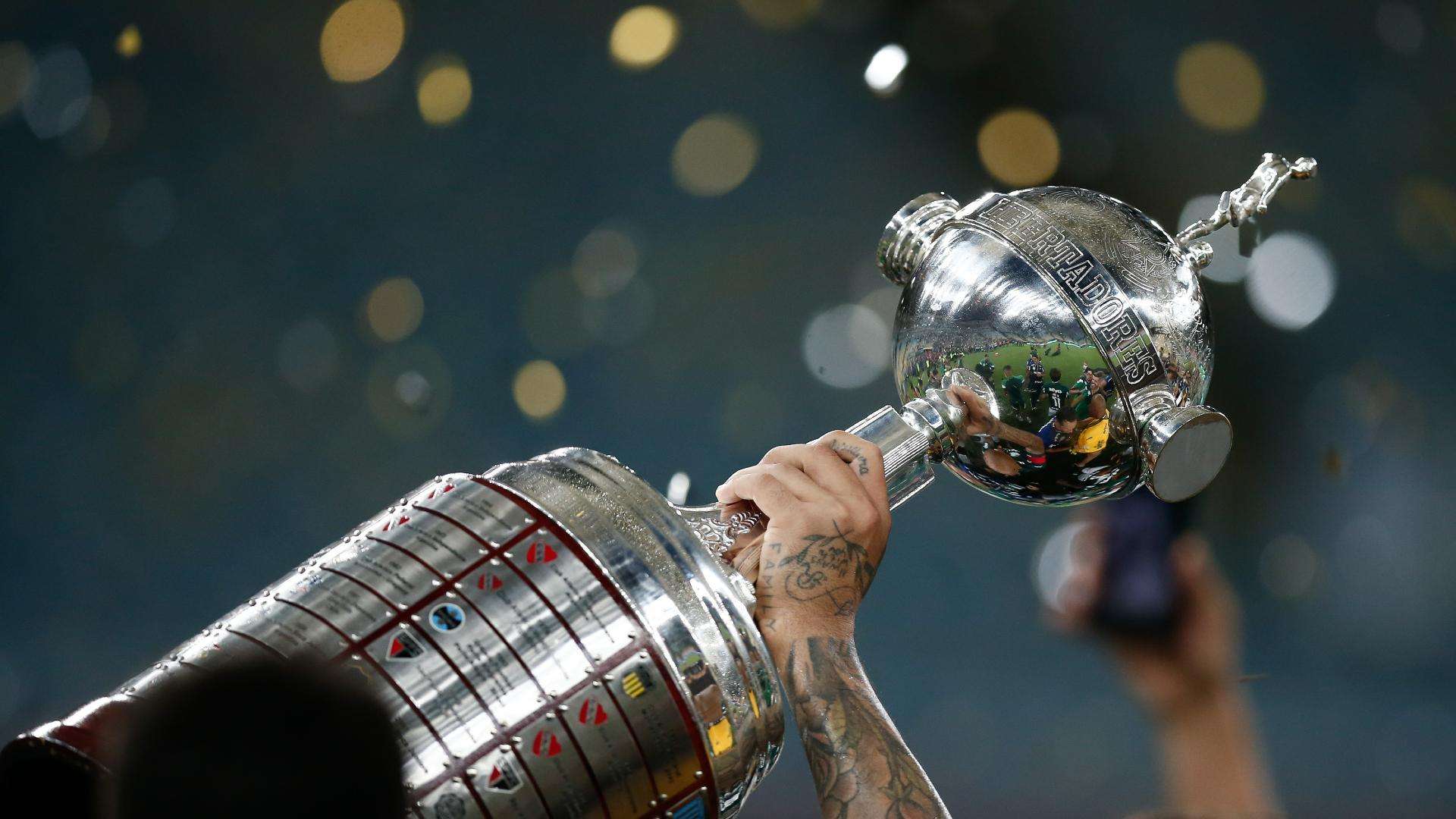
What makes the Copa Libertadores so special? The Copa Libertadores is the crown jewel of South American club football, a tournament steeped in history, passion, and fierce competition. Imagine a stage where legends like Pelé, Zico, and Higuita showcased their brilliance. This tournament isn't just about winning; it's about national pride, unforgettable moments, and intense rivalries, especially between Brazilian and Argentine clubs. With an average attendance of 24,362 and broadcasts reaching over 135 countries, its global impact is undeniable. From its inception in the 1930s to today's thrilling matches, the Copa Libertadores remains a symbol of football excellence and cultural significance.
Key Takeaways:
- The Copa Libertadores is a top-tier football tournament, ranking among the most-watched and attended competitions globally, showcasing the best of South American football culture and history.
- With iconic teams, legendary players, and unforgettable moments, the Copa Libertadores has left an indelible mark on the world of football, inspiring generations to strive for greatness in South American football.
The Importance of Copa Libertadores
The Copa Libertadores is more than just a football tournament. It's a celebration of South American football culture, showcasing the continent's best clubs and players. Here are some key facts that highlight its significance.
- The Copa Libertadores is ranked among the top five most important international soccer competitions, only behind the FIFA World Cup, UEFA Champions League, UEFA Euro, and Copa America.
- The average attendance for the Copa Libertadores is 24,362, making it the third most attended tournament globally, after the FIFA World Cup and UEFA Champions League.
- The final of the Copa Libertadores is broadcasted to over 135 countries around the globe, ensuring it is among the most watched competitions in the world.
Historical Significance
The Copa Libertadores has a rich history that dates back to the early 20th century. Its origins and evolution are fascinating.
- The Copa Libertadores was first conceived in the 1930s and 1940s, with Argentine and Uruguayan clubs competing in the Copa Ricardo Aldao. This early competition laid the groundwork for the modern-day Copa Libertadores.
- The Copa Libertadores is organized by CONMEBOL (Confederación Sudamericana de Fútbol), which oversees all football activities in South America. The tournament has been a cornerstone of CONMEBOL's efforts to promote football across the continent.
- The name "Copa Libertadores" is a tribute to the top leaders who won the nations of South America their independence: José Artigas, Simon Bolivar, Jose de San Martin, Jose Bonifacio de Andrada e Silva, D. Pedro I, Antonio Jose de Sucre, and Bernardo O'Higgins.
Dominance and Rivalries
Certain countries and clubs have dominated the Copa Libertadores, creating intense rivalries and memorable matches.
- Argentina has won the most Copa Libertadores titles with 24 championships, followed by Brazil with 17. The winningest club in the competition's history is Argentine club Independiente, with seven titles, followed by Boca Juniors and Peñarol with six and five respectively.
- The fastest goal ever scored in the Copa Libertadores was achieved by Felix Suarez in 1976, who scored in just six seconds for Alianza Lima against Santa Fe.
- The highest scorer in the Copa Libertadores is Alberto Spencer from Ecuador, who scored 54 goals mostly for Peñarol. The next two highest scorers are Fernando Moreno and Pedro Rocha from Uruguay, both of whom scored 37 and 36 goals respectively while wearing the Peñarol jersey.
- The biggest win in the competition's history was achieved by Peñarol, who defeated Valencia 11-2 on March 15, 1970.
Memorable Moments
The Copa Libertadores has seen some unforgettable moments that have left a lasting impact on football fans.
- The Copa Libertadores is known for its competitive nature. In two different matches, clubs needed 26 penalty kicks to define the winner, showcasing the high stakes and intense rivalry within the tournament.
- Seven clubs have won the Copa Libertadores unbeaten, with one of them doing so twice. Estudiantes achieved this feat in 1969 and 1970, while Peñarol won it in 1960 with three wins and four draws.
- Only one club has appeared in the finals of the Copa Libertadores more than once with a 100% success rate: Racing in 1967. Nine clubs have appeared in the final once and were victorious on that occasion, including Argentinos Juniors in 1985 and Vélez Sársfield in 1994.
- Nacional holds the record for consecutive participations, with 25 appearances from 1997 to 2021.
- Two clubs have appeared in a record four consecutive finals: Estudiantes (1968, 1969, 1970, and 1971) and Independiente (1972, 1973, 1974, and 1975).
Modern Era and Sponsorship
The Copa Libertadores has evolved over the years, with changes in format and sponsorship playing a significant role.
- Since 1999, only Boca Juniors (in 2001) and Palmeiras (in 2021) have defended their title in the current format, where the previous year's champions start the tournament in the group stage.
- The official name of the competition is Bridgestone Copa Libertadores, reflecting the practice of putting the main sponsor's name in the competition's title, which began in 1998 with Toyota.
- The CONMEBOL club ranking is used for seeding in the qualifying and group stage draws of the Copa Libertadores. This ranking is based on a club's performance in the last 10 years of the Copa Libertadores, its historic performance, and its performance in local championship tournaments.
- Starting from 2021, the CONMEBOL ranking was updated to include Copa Sudamericana performances, rebranded as the CONMEBOL Clubs Ranking. This change aims to provide a more comprehensive evaluation of a club's overall performance.
Participating Clubs and Countries
The diversity of clubs and countries participating in the Copa Libertadores adds to its competitive nature.
- A total of 219 clubs have participated in the Copa Libertadores as of the 2023 edition. This includes teams from all ten CONMEBOL member countries.
- The Copa Libertadores includes teams from all ten CONMEBOL member countries. This diversity ensures that the competition is highly competitive and reflects the best of South American football.
- In the modern era, only one club has achieved an unbeaten run in the Copa Libertadores: Corinthians in 2012 with eight wins and six draws. Flamengo also achieved an unbeaten run in 2022 with twelve wins and one draw.
Iconic Teams and Players
The Copa Libertadores has been graced by some of the most iconic teams and players in football history.
- The Copa Libertadores has been saturated with legendary matches, iconic players, and exceptional teams. From Peñarol's historical consecration in 1960 to Santos's magical football led by Coutinho and Pelé, the tournament has seen some of the most memorable moments in football history.
- In the early years of the tournament, Peñarol dominated South American club football. They reached the final for the third consecutive year in 1962-63, facing Brazilian champions Santos led by Pelé.
- Argentine teams began to make their mark in the tournament starting from 1964. Independiente became the first Argentine team to win the competition by defeating Santos and Nacional in the finals.
- Estudiantes L.P., not one of the traditional "big five" teams in Argentine football, broke the domination of these teams by winning their first domestic league title in 1967 and then going on to win the Copa Libertadores in 1968 by defeating Palmeiras in the final.
- Juan Carlos Lorenzo’s coaching of Boca Juniors is legendary. He led the team to significant success, including multiple domestic and international titles. His legacy continues to inspire generations of footballers and coaches.
- Flamengo engraved their names on the winner's list at the hands of a squad led by Zico. This marked a significant moment in Brazilian football history, showcasing the talent and dedication of the team.
- René Higuita’s memorable saves against Olimia are etched in football history. His exceptional goalkeeping skills played a crucial role in his team's success, making him a legendary figure in the sport.
- São Paulo has made significant contributions to the tournament, including multiple appearances in the finals and a strong performance in the competition. Their dedication to football has earned them a place among the top teams in South America.
Legacy and Impact
The Copa Libertadores has left an indelible mark on the world of football, influencing generations of players, coaches, and fans.
- The CONMEBOL club ranking has significantly impacted the tournament by providing a fair and comprehensive evaluation of a club’s performance. This ranking system ensures that teams are seeded appropriately, reflecting their historical and recent achievements.
- The Copa Libertadores has been a cornerstone of South American football culture, fostering some of the most iconic matches and legendary players in history. Its rich history is saturated with many legendary matches, iconic players, and exceptional teams.
- In the early years of the tournament, Peñarol dominated South American club football. They reached the final for the third consecutive year in 1962-63, facing Brazilian champions Santos led by Pelé.
- Argentine teams began to make their mark in the tournament starting from 1964. Independiente became the first Argentine team to win the competition by defeating Santos and Nacional in the finals.
- Estudiantes L.P., not one of the traditional "big five" teams in Argentine football, broke the domination of these teams by winning their first domestic league title in 1967 and then going on to win the Copa Libertadores in 1968 by defeating Palmeiras in the final.
- Juan Carlos Lorenzo’s coaching of Boca Juniors is legendary. He led the team to significant success, including multiple domestic and international titles. His legacy continues to inspire generations of footballers and coaches.
- Flamengo engraved their names on the winner’s list at the hands of a squad led by Zico. This marked a significant moment in Brazilian football history, showcasing the talent and dedication of the team.
- René Higuita’s memorable saves against Olimia are etched in football history. His exceptional goalkeeping skills played a crucial role in his team’s success, making him a legendary figure in the sport.
- São Paulo has made significant contributions to the tournament, including multiple appearances in the finals and a strong performance in the competition. Their dedication to football has earned them a place among the top teams in South America.
- The CONMEBOL club ranking has significantly impacted the tournament by providing a fair and comprehensive evaluation of a club’s performance. This ranking system ensures that teams are seeded appropriately, reflecting their historical and recent achievements.
- The Copa Libertadores has been a cornerstone of South American football culture, fostering some of the most iconic matches and legendary players in history. Its rich history is saturated with many legendary matches, iconic players, and exceptional teams.
- In the early years of the tournament, Peñarol dominated South American club football. They reached the final for the third consecutive year in 1962-63, facing Brazilian champions Santos led by Pelé.
- Argentine teams began to make their mark in the tournament starting from 1964. Independiente became the first Argentine team to win the competition by defeating Santos and Nacional in the finals.
- Estudiantes L.P., not one of the traditional "big five" teams in Argentine football, broke the domination of these teams by winning their first domestic league title in 1967 and then going on to win the Copa Libertadores in 1968 by defeating Palmeiras in the final.
- Juan Carlos Lorenzo’s coaching of Boca Juniors is legendary. He led the team to significant success, including multiple domestic and international titles. His legacy continues to inspire generations of footballers and coaches.
- Flamengo engraved their names on the winner’s list at the hands of a squad led by Zico. This marked a significant moment in Brazilian football history, showcasing the talent and dedication of the team.
- René Higuita’s memorable saves against Olimia are etched in football history. His exceptional goalkeeping skills played a crucial role in his team’s success, making him a legendary figure in the sport.
- São Paulo has made significant contributions to the tournament, including multiple appearances in the finals and a strong performance in the competition. Their dedication to football has earned them a place among the top teams in South America.
- The CONMEBOL club ranking has significantly impacted the tournament by providing a fair and comprehensive evaluation of a club’s performance. This ranking system ensures that teams are seeded appropriately, reflecting their historical and recent achievements.
- The Copa Libertadores has left an indelible mark on the world of football. Its legacy extends beyond the field, influencing generations of players, coaches, and fans. The tournament continues to be a symbol of excellence and competition in South American football, inspiring new generations to strive for greatness.
The Legacy of Copa Libertadores
Copa Libertadores stands as a monumental pillar in South American football. Its rich history, filled with legendary matches and iconic players, has left an indelible mark on the sport. From the early dominance of Peñarol to the rise of Argentine teams, the tournament showcases the best of South American talent and passion. Clubs like Independiente, Boca Juniors, and Flamengo have etched their names in football history through their remarkable performances. The competition's global reach, high attendance, and intense rivalries highlight its significance. With unforgettable moments like René Higuita’s saves and Zico’s leadership, Copa Libertadores continues to inspire and captivate football fans worldwide. Its legacy is not just about the past but also about the future, as new generations of players and fans embrace the spirit of competition and excellence that defines this prestigious tournament.
Frequently Asked Questions
Was this page helpful?
Our commitment to delivering trustworthy and engaging content is at the heart of what we do. Each fact on our site is contributed by real users like you, bringing a wealth of diverse insights and information. To ensure the highest standards of accuracy and reliability, our dedicated editors meticulously review each submission. This process guarantees that the facts we share are not only fascinating but also credible. Trust in our commitment to quality and authenticity as you explore and learn with us.


